 IMPORTING PRODUCTS SUBJECT TO ANVISA: WHAT YOUR COMPANY NEEDS TO KNOW?
IMPORTING PRODUCTS SUBJECT TO ANVISA: WHAT YOUR COMPANY NEEDS TO KNOW?
IMPORTING PRODUCTS SUBJECT TO ANVISA: WHAT YOUR COMPANY NEEDS TO KNOW?
The Brazilian market is an undeniable attraction for companies wishing to import innovative, quality products. However, when these products have a direct impact on the health and well-being of the population, the process of getting them onto the shelves requires extra attention. This is where the National Health Surveillance Agency (ANVISA), the guardian of public health in the country, comes in. Importing items such as medicines, cosmetics, specific foods, medical products, health equipment, sanitizers or related products is not a simple customs procedure - it's a complex regulatory process, where mistakes can mean costly delays, cargo being held up or even the impossibility of commercialization. For companies operating in or wishing to enter this promising but challenging sector, understanding ANVISA's rules of the game is not a detail, it is the basis for success. This article unveils the essential points that your company needs to master in order to safely and efficiently navigate the import of products subject to sanitary screening.
What you'll see on this blog:
Clear Identification: Is Your Product Under the ANVISA Umbrella?
The first step, and perhaps the most crucial, is to determine with absolute certainty whether the product you want to import is subject to health surveillance. ANVISA doesn't regulate everything that enters the country, but its scope is significant. Don't limit yourself to assumptions based on general categories. A cosmetic with therapeutic claims? A food supplement with a specific composition? A device that looks simple but has a medical purpose? These are classic examples where the line can be blurred. Making a mistake in this initial classification is like building a house on sand: all subsequent efforts could collapse. Consult official ANVISA sources or seek expert advice to confirm the need for registration, notification or any other type of prior control before closing any international deal. Skipping this step can lead to the goods being seized at customs before the actual regulatory process has even begun.
Pre-Clearance Documentation and Requirements: The Basis for Smooth Clearance
Once ANVISA approval has been confirmed, the next stage involves meticulously preparing all the necessary documentation before the product is shipped to Brazil. This is not just any bureaucracy; it is technical and legal proof that the imported item strictly meets the safety, quality and efficacy standards required to protect the Brazilian consumer. The list of documents varies according to the type of product, but generally includes certificates of origin and free sale issued by the competent authorities in the country of origin, detailed laboratory analyses, proof of good manufacturing practices, labels and manuals in Portuguese and in compliance with local regulations, as well as proof of valid registration or authorization with ANVISA. Missing an essential document, presenting inconsistent or outdated information is a guarantee of significant delays in customs clearance, generating storage costs and immobilization of capital.
The Process Doesn't End at Customs: Post-Clearance and Continuous Surveillance.
Many companies make the mistake of believing that once the cargo has been cleared by customs (with ANVISA's approval), the regulatory work is over. This is a mistake. The importing company's responsibility to ANVISA is continuous. This means keeping all the technical and regulatory documentation organized and accessible for any inspections. It also means ensuring that the storage and transportation of the product within national territory meets the appropriate conditions to preserve its quality and safety (such as temperature control for thermolabile products, for example). In addition, any significant change in the product, the foreign manufacturer or even the packaging may require a new communication or even updating of the registration with the Agency. ANVISA's market surveillance is active, and the importing company is primarily responsible for responding to any non-conformities identified once the product has entered the country.
Why is Stone Okamont the Strategic Partner Your Import Needs?
Navigating ANVISA's intricate regulatory universe requires more than goodwill; it demands in-depth expertise, practical experience and a consolidated network of relationships. It's a terrain where details make all the difference between commercial success and substantial losses. This is where Stone Okamont becomes not just a service provider, but a true strategic partner for your business.
When you hire Stone Okamont, your company gains more than a bureaucratic facilitator; it gains an ally who turns the regulatory challenge into a competitive advantage. We free up your team to focus on core business (market development, sales and strategy) while ensuring that the regulatory base, essential for operating safely and legitimately, is solid and well taken care of. We drastically reduce the risks of retentions, seizures and fines, speed up your product's time-to-market and give you the peace of mind of knowing that your import is in the hands of experts who are committed to your success.
Want to know the ideal path
FOR YOUR COMPANY?
Request a quote here.


